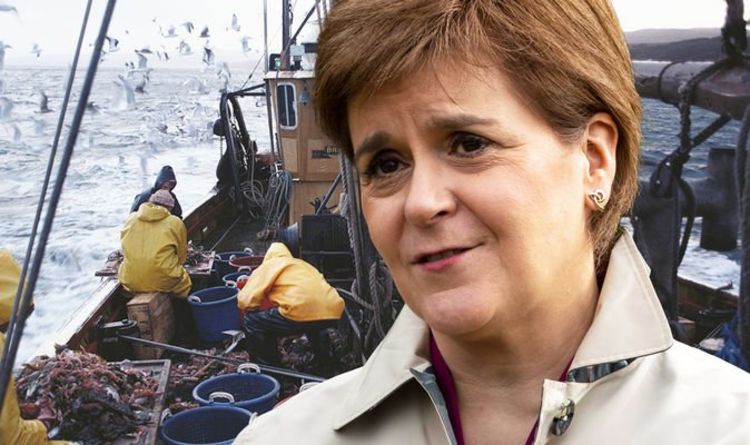Throughout Brexit, fishermen criticised the European Common Fisheries Policy (CFP) and there is concern they could be dragged back into it, one industry insider has revealed. Speaking to Express.co.uk, chief executive of the National Federation of Fishermen’s Organisations Barrie Deas warned there was great concern the industry in Scotland could be harmed if Ms Sturgeon takes the country back into the EU. Commenting on the possibility of Scottish fishermen returning to the policy, Mr Deas said: “I think there’s great anxiety that the Scottish industry would be back would be dragged back into the common fisheries policy.
“Which is why I think the Conservative MPs which were elected in the 2017 general election, I think there’s quite a strong coastal element to the essence of Conservative fortunes in Scotland.
“And that’s largely driven by the fishing vote in particular constituencies.
“So I think there is strong anxiety the Scottish industry would find itself back in the common fisheries policy.”
Mr Deas insisted trade could be chaotic in an independent Scotland back in the bloc.
He added: “I suppose when you think about it if Scotland was independent in the EU, unless a different way of exporting was found, it would mean Scottish fish crosses two borders.
“It would be crossing out of the EU into the UK and then out of the UK into the EU again.
“It would certainly raise issues.”
The CFP has long been criticised for how it has exploited British fishermen throughout the UK’s time within the EU.
JUST IN: Brexit LIVE: French boats ‘decimating’ Jersey scallops stock
The EU will have continued access to the UK waters for five-and-a-half years when the two sides will then renegotiate on an annual basis to set Total Allowable Catch for shared stocks.
These negotiations will also cover access arrangements for the UK’s waters.
If the UK does decide to restrict access or exceeds the set quota, punitive measures can be taken by either side while a dispute mechanism is included within the agreement.
Either side can also apply tariffs on goods within the agreement or suspend parts of the deal.
The agreement can also be terminated with nine months’ notice, although the obligations will continue until the end of the year.
Following the deal, some fishermen in Scotland have experienced trade issue when exporting to the EU.
In order to aid these issues, the Government has set up a £23million budget for seafood exporters in the UK.




